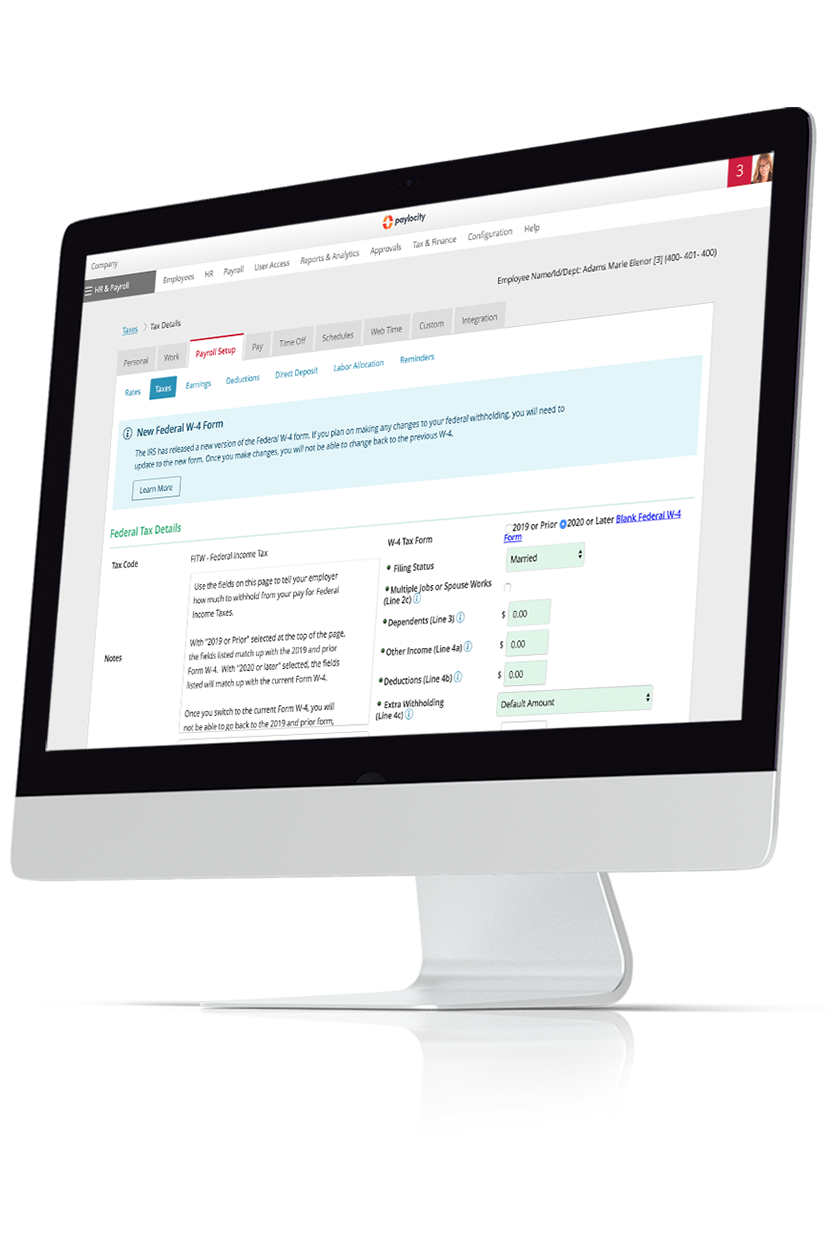New York Payroll Tax Facts
January 10, 2025
Having to comply with unique state taxes and wage laws can make processing payroll doubly daunting. Here’s everything you need to know about these rates and laws for the state of New York.

Not only does the state have a unique minimum wage rate compared to the rate required by the federal government, New York is one of the few states with a State Disability Insurance program. Moreover, it also has a paid family leave program for employees within its borders.
When it comes to processing payroll, New York-based organizations must handle the following taxes in addition to those required by the federal government:
- Personal Income (a.k.a. State Income Tax)
- State Unemployment Insurance (SUI)
- State Disability Insurance (SDI)
- Paid Family and Medical Leave (PFML)
- Local Taxes
- Metropolitan Commuter Transportation Mobility Tax (MCTMT)
The below information was last updated January 10, 2025. It is not intended as legal or tax advice.
New York Payroll Tax Rates
New York State Income Tax (SIT)
New York's SIT is progressive, meaning it adjusts based on the location and income level of the employee paying the tax. Calculating New York SIT depends on the following:
- If the New York state-adjusted gross income is more than $107,650, use the state's tax computation worksheet for resident and nonresident employees.
- If the New York state-adjusted gross income is less than $107,650 and the state taxable income is $65,000 or more, use the applicable tax rate schedules for resident or nonresident employees based on filing status (e.g., married filing jointly, single or married filing separately, etc.)
- If the New York state-adjusted gross income is less than $107,650 and the state taxable income is less than $65,000, use the state's tax tables for resident or nonresident employees.
|
Additional New York SIT Details |
|
|
Supplemental Withholding Computation |
Varies by jurisdiction:
|
|
Valid Filing Statuses |
|
|
Exemptions |
Number of Allowances |
|
Form W-4 |
|
|
Reconciliation Frequency |
Quarterly |
New York State Unemployment Insurance (SUI)
SUI provides unemployment benefits to eligible workers who are unemployed through no fault of their own (as determined by state law) and meet the state’s eligibility requirements.
|
New York SUI Tax Details |
|
|
Taxable Wage Base |
$12,800 |
|
Employee Subject to Tax |
No |
|
Rates for Experienced Employers |
2.10% – 9.90% |
|
Rates for New Employers |
4.10% |
|
Period Effective |
Calendar Year |
|
Voluntary Contributions Allowed |
Yes; must be paid by March 31 of the following year |
New York State Disability Insurance (SDI)
SDI benefits are funded by employees through mandatory payroll deductions from each paycheck.
|
New York SDI Tax Details |
|
|
Wage Base Limit |
N/A |
|
Employee Deduction Rate |
0.388% |
|
Maximum Employee Contribution |
$354.53 annually
|
|
Employer Contribution |
Remaining costs after employee contributions are applied. |
| Maximum Benefit Rate | $1,177.32 weekly |
New York Paid Sick Leave (PSL) Tax
The state of New York doesn’t require employers to collect PSL taxes, but it does have a program providing such leave to eligible employees:
|
New York PSL Details |
|
| Covered Employers | All with four or more employees within the U.S. |
|
Covered Employees |
All (with limited exceptions) |
|
Accrual Method(s) |
One hour per 30 hours worked |
|
Annual Accrual Cap |
Varies based on employer size:
Employers with 4 or fewer employees and a net income greater than $1 million in the previous tax year must provide 40 paid and 40 unpaid hours. |
|
Probationary Period |
None |
|
Frontloading Allowed |
Yes |
|
FAQs |
|
New York Paid Family and Medical Leave (PFML) Tax
Like SDI, New York’s Paid Family Leave (PFL) program is funded via mandatory payroll deductions.
|
New York PFL Details |
|
| Covered Employers | All private employers |
|
Covered Employees* |
Full-time employees who regularly work 20 or more hours per week after 26 consecutive weeks of employment. Part-time employees who regularly work less than 20 hours a week after working 175 consecutive or non-consecutive days. |
| Wage Base Limit | $91,300 |
| Tax Rate | 0.388% |
|
Maximum Annual Contribution |
$354.24 |
|
Maximum Leave Available |
12 weeks
|
|
Wage Replacement |
67% of average weekly wage (of prior 8 weeks before filing a claim) up to maximum benefit rate |
|
Maximum Benefit Rate |
$1,151.16 per week |
|
FAQs |
|
*While most employees are eligible after meeting the above criteria, the state identifies some exceptions.
New York Local Taxes
In addition to the state-wide taxes mentioned above, the following cities have unique income taxes as well:
- New York City also requires a 4.25% income tax from its residents.
- Yonkers also requires a 1.959575% income tax from its residents and a 0.50% income tax from nonresidents who work in the area.
New York Metropolitan Commuter Transportation Mobility Tax (MCTMT)
The MCTMT is a quarterly tax applied to certain employers and self-employed workers who do business in the Metropolitan Commuter Transportation District (MCTD). This area is split into two zones each with tiered tax rates based on an employer's quarterly payroll.
- Zone 1: Manhattan, Bronx, Brooklyn, Queens, and Staten Island
- Zone 2: Rockland, Nassau, Suffolk, Orange, Putnam, Dutchess, and Westchester counties
|
Quarterly Payroll |
Zone 1 Tax Rates |
Zone 2 Tax Rates |
| $0 - $375,000 | 0.11% | 0.11% |
|
$375,001 - $437,500 |
0.23% | 0.23% |
|
$437,501 or greater |
0.60% | 0.34% |
Miscellaneous New York Tax Information
New York Reciprocal Agreement(s)
Reciprocal agreements are when workers who live and work in different states are only required to pay taxes to the state where they live. New York currently has no reciprocal agreements with any other states.
This doesn’t mean, however, that interstate workers living in New York pay double. It’s federally illegal for two states to tax the same income. In most cases, the employee’s work state will credit or refund them at tax time based on the taxes they owe their home state. If the tax rates differ, the employee must cover the difference.
New York Minimum Wage Rates
| Wage Type |
New York Rates |
Federal Rates |
|
Minimum Wage |
$15.50 |
$7.25 |
|
Tipped Minimum Wage |
$12.90 (Service) |
$2.13 |
|
Actual Tip Credit |
$2.60 (Service) |
$5.12 |
In addition to the state-wide minimum wage rates above, some cities have unique minimum wage rates as well:
| Wage Type |
Long Island / New York City / Westchester Rates |
|
Minimum Wage |
$16.50 |
|
Tipped Minimum Wage |
$13.75 (Service) |
|
Actual Tip Credit |
$2.75 (Service) |
Paying Payroll Taxes in New York
New York Employer Registration
The agencies below can help with your state-based employer registration, including best practices, account numbers, and unemployment information. Contact the Department of Taxation and Finance for withholding tax topics and the Department of Labor for unemployment tax topics.
|
Registration Details |
Department of Taxation & Finance |
Department of Labor |
|
Phone |
(518) 485-6654 |
(888) 899-8810 |
|
Online Registration |
NY.GOV Registration Page | |
|
Phone Registration |
(888) 899-8810 |
N/A |
|
Registration Instructions |
Employers can register online or by phone, and account number(s) will be issued within 10 days. Note, there will be separate account numbers for each tax type under the combined registration. |
|
|
Employer Self-Service Login |
||
Additional New York Payroll Tax Resources
- Department of Taxation and Finance Businesses Page
- Department of Taxation and Finance Forms and Guidance Library
- Department of Labor Services for Businesses Page
This information is provided as a courtesy and may be updated at any time. It is not intended as legal or tax guidance. If you have questions or concerns, we encourage you to seek the advice of a qualified CPA, tax attorney, or advisor.

Get Taxes Done Right, Without the Stress
We know there's a lot that goes into preparing and filing payroll tax forms. Save time and get support from our expert team. As a Registered Reporting Agent with the IRS, we can help prepare and file all the necessary forms you need to remain compliant - even in the face of changing legislation. Learn more here.